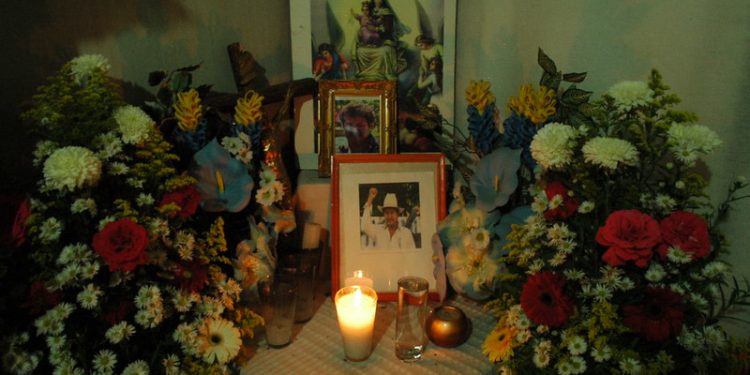José Luis Abarca is in Ottawa this week to announce a groundbreaking legal complaint against Canada at the Inter-American Commission on Human Rights, making the case for Canada's legal accountability for human rights abuses tied to its mining companies overseas. José Luis is a lawyer and son of Mariano Abarca, a Mexican environment defender killed in 2009 while speaking out against a Canadian mine. Mariano's family has been trying to get the Canadian Embassy in Mexico investigated for potentially putting Mariano's life at greater risk by advocating on behalf of the Canadian company to advance operations. The following is a statement read out by José Luis during a press conference in Ottawa.
"Five years ago, I was here in this press room to announce a complaint we had filed with the Office of the Public Sector Integrity Commissioner of Canada. In the complaint, we demanded an investigation into the actions and omissions of the Canadian Embassy in Mexico, because we believe that the Embassy increased the danger that my father, Mariano Abarca, faced.
Since 2008, my father was involved in a struggle alongside other community members in the town of Chicomuselo, Chiapas, to prevent the Canadian mining company Blackfire from contaminating our water and land through the mining of barite. He took part in this movement while facing threats and attacks – both on a personal level and against his family – including a moment where we were both beaten by company workers in 2008. In August 2009, Mariano was detained for eight days on false charges filed by a company representative. He was subsequently murdered on November 27, 2009.
During the time that Blackfire was operating in Chicomuselo, the Embassy had significant knowledge of the local population's discontent with the company, and also had information about my father and the risks he faced. In documents that our Canadian allies were able to obtain following access to information requests, we were able to learn that the company considered the Embassy's support essential. In an email we accessed from the company to the Embassy after the company secured its explosives permit, it said, "We could not have done it without your help."
In coming to Canada to file our complaint, we expected that Canadian authorities would give us a favourable response. However, we have encountered here the same lack of willingness and seriousness to investigate the case that we have encountered in Mexico, where we live in a context where companies and their supporters enjoy complete impunity.
We will continue to seek justice for what happened to my father and my community. We will also continue to seek measures of non-repetition for other people and Indigenous communities protecting life and demanding their rights be respected with regards to Canadian mining investment, and here the risks of violence have only deepened in recent years. Therefore, we have no other option but to take our complaint to the Inter-American Commission on Human Rights where we hope the Commission will take our evidence and arguments seriously and establish Canada's responsibility for its unfettered support for corporate greed that continues to plunder and kill us in Mexico and other parts of the world."
